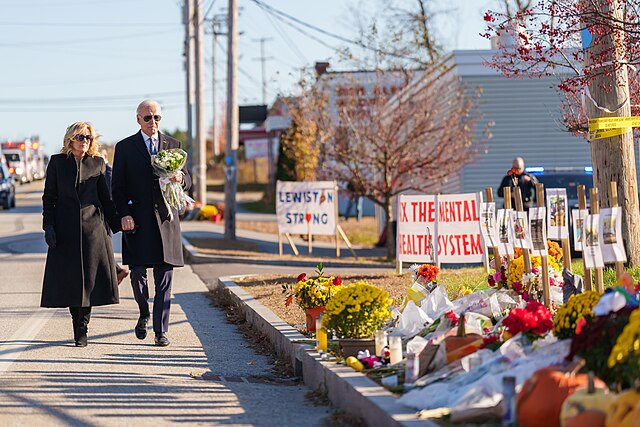Key Points:
- Plaintiffs: ~100 survivors and families of Lewiston victims.
- Defendants: Defense Department, Army, Keller Army Community Hospital.
- Claims: Army ignored warnings, failed to restrict Card's access to firearms.
- Fatalities: 18 killed, dozens injured in Oct. 2023 shooting.
- Prior warnings: Psychiatric hospitalization, threats, and family alerts.
- Legal precedent: Follows partial liability finding against U.S. government in 2017 Texas church shooting case.
Families of victims and survivors of the 2023 mass shooting in Lewiston, Maine, are preparing to file a negligence lawsuit against the U.S. government, arguing that the Army and military medical officials ignored repeated warnings about the gunman's deteriorating mental health.
The lawsuit, expected to be filed Wednesday in federal court in Maine, will name the Defense Department, the Army and Keller Army Community Hospital at West Point, New York, according to attorneys representing nearly 100 plaintiffs. The case stems from the Oct. 2023 shooting, when Army reservist Robert Card killed 18 people at a bowling alley and a bar before dying by suicide two days later.
"The Army repeatedly broke its promise to protect the community that it pledges to defend and must be held responsible," Maine attorney Travis Brennan said. Another lawyer, Benjamin Gideon, added: "It's hard to imagine the Army ever accepting accountability without being forced to do so in court."
Card's family and military colleagues had raised alarms about his behavior months before the shootings. His son told the Army in May 2023 that his father's mental health was deteriorating. In July, Card was hospitalized for two weeks following an altercation with another reservist, during which doctors reported psychosis, homicidal ideations and the existence of a "hit list." The Army barred him from carrying weapons while on duty, but did not initiate broader measures to restrict his access to firearms.
An independent state commission found that leaders of Card's unit "failed to undertake necessary steps to reduce the threat he posed to the public," including disregarding recommendations from mental health providers and neglecting to ensure the removal of firearms from his home. The commission also said Keller Army Community Hospital failed to file a SAFE Act notice, which would have alerted authorities that Card was a potential danger.
The commission noted that local law enforcement had probable cause to use Maine's "yellow flag" law-allowing temporary seizure of firearms from individuals deemed dangerous-but never acted on it. Sagadahoc County Sheriff Joel Merry said deputies attempted to locate Card after being told he had threatened to "shoot up" a National Guard base, but were unable to find him.
The forthcoming suit follows a legal strategy tested in other cases involving service members. National Trial Law, one of the firms representing Maine families, also represented survivors of the 2017 Sutherland Springs, Texas, church shooting, where the federal government was found partly liable for failing to prevent a gunman with a military record from carrying out the attack.
Card's relatives have since voiced support for further research into brain injuries among service members. Investigators have examined whether his work as a hand grenade instructor exposed him to low-level blasts linked to traumatic brain injury. The Army, however, said its review found no service-related connection.
Card's family launched a nonprofit, Rising Over Brokenness, to promote mental health awareness among service members. "What worries me much more, to be quite honest, is what the children themselves are going to think when they get a little bit older and they realize how they've been exploited," his sister previously told NBC News, underscoring concerns about military accountability.




